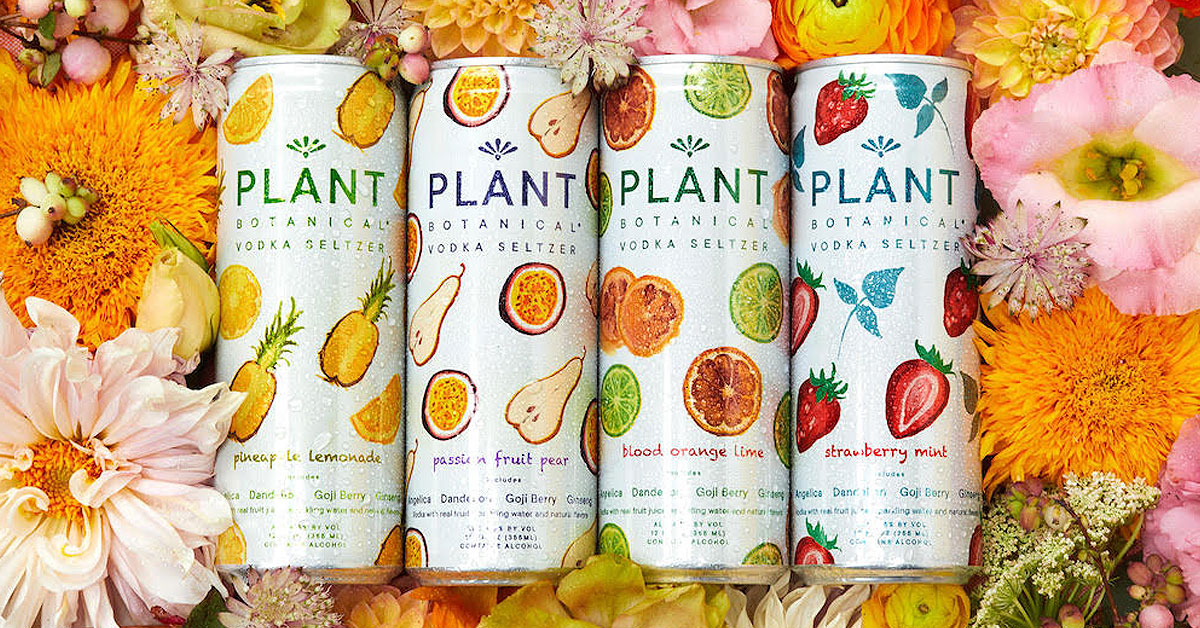 When Simone Moran launched ready-to-drink cocktail Plant Botanical in summer 2021 her early advisors told her she couldn’t get into national retailers. But after spring resets this year, the Los Angeles-based cocktail brand can be found at Albertsons, Walmart, Target and on the in-flight menu of JetBlue Airlines.
When Simone Moran launched ready-to-drink cocktail Plant Botanical in summer 2021 her early advisors told her she couldn’t get into national retailers. But after spring resets this year, the Los Angeles-based cocktail brand can be found at Albertsons, Walmart, Target and on the in-flight menu of JetBlue Airlines.
“They told me I was too new of a brand, it’s crowded, or that I don’t have a large distributor,” she said. “But I would say if you really follow your gut and your vision, hopefully retailers will see that and see that you have a great brand.”
Moran’s vision for a vodka-based, better-for-you alternative cocktail that would use sustainable ingredients, emerged out of her 20-year practice as an herbalist and acupuncturist. Her first foray into CPG was In Total Wellness, a line of herbal drink mixes to help relieve certain ailments. While researching herbs she came upon a mixture meant to fight hangover effects, which inspired the idea for a cocktail infused with botanicals such as dandelion, goji berries, and ginseng. The 4.5% ABV cocktails come in flavors like passion fruit pear, pineapple lemonade and blood orange lime.
Mirroring other sustainable RTD brands, Moran highlights her base product as a differentiator. The vodka is made from sorghum grass, a gluten-free non-GMO ancient grain that is more drought tolerant, and according to Moran, more sustainable than vodka’s typical base crop, corn. The company moved its distillery from Napa Valley to Kansas, where the distillery was able to grow the grass on site.
“There’s a huge movement to be more sustainable in these Midwest distilleries and to grow the grain on the distillery instead of using gas and truckloads and emissions,” she said.
Since launching, the cocktail and Moran’s background have fit an emerging demand from retailers for functional or wellness-centered ingredients and sustainably-minded products, she said. Moran is banking on her cocktail’s unique ingredients capturing the intersection of those emerging trends, and differentiating from plenty of other RTDs also boasting low alcohol or natural ingredients.
“The better-for-you, better-for-the-planet really helps play into what retailers and hotels want,” she said. “Those are on top of people’s minds, and coming from a healthcare background, that was on top of my mind too.”
The summer she launched Plant Botanicals, Target picked up the cocktail in California outlets after Moran “just emailed them” and expanded to 12 states the following year. That gave the brand momentum to land other major accounts.
“To get into retailers they usually want to see some data, but until you get into a retailer, you can’t show data,” she said. “So it’s hard and you have to have some really unique selling points that they think the consumer will be attracted to, especially if you’re a new brand.”
The company is now sold through Republic National Distributing Company in 20 states and has hit the shelves at Total Wine, Albertsons and Cost Plus World Markets in California. Walmart has picked up the RTD in 18 states, and Whole Foods Market has brought it into seven, where the cocktail scans at spot 12 out of 70 RTD brands, according to Plant Botanical. Without a big marketing budget for ads or influencers, sales have been driven by tasting events (although some event partnerships have merged with top influencers, such as Camp Poosh, the Coachella bash hosted by Kourtney Kardashian’s lifestyle company). Other Hollywood figures, like actress Jamie Chung, have been spotted attending the brand’s campaign events too.
“As sustainable or as good for you as it is, sometimes people think it doesn’t taste good,” she said. “So sips-to-lips events where we are giving out samples to 1,000 people at a time have been good.”
Like other RTD brands, the company has also found a niche as an in-flight perk on JetBlue’s domestic and transatlantic flights where the Strawberry Mint flavor is available in first class as of April.
“As we continue to bring our sustainability practices into the inflight experience, Plant is a natural fit to join our roster of brand-name beverages, proving that customers don’t need to skimp on delicious taste and high-quality ingredients to make more environmentally conscious choices,” said Mariya Stoyanova, director of product development for JetBlue in a statement.
The expanded presence comes on the heels of the company’s first capital raise, which has secured $2.5 million so far of a $3.5 million goal. That capital will go towards supporting marketing efforts and sales staff, a gap that has been a tough spot for Moran, who made the pitches to national retailers and most of the brand’s on-premise accounts herself.
“Initially we had a sales platform that we thought would be great, and we realized that they were just kind of managing distributors,” she said. “And any new company should know that managing distributors is necessary but does not get you sales. You really need your own team of salespeople.”
Moran has trained hundreds of part-time ambassadors, but will hire a full sales team as the company moves into targeting sales where products sell at high volume including California, Florida, Illinois, Wisconsin, Virginia and Arizona. From there, she’s aiming to focus on other demographics.
“Probably the metropolitan cities, where people are a little bit more open to try new things, and the young mom is likely our target consumer,” she said.